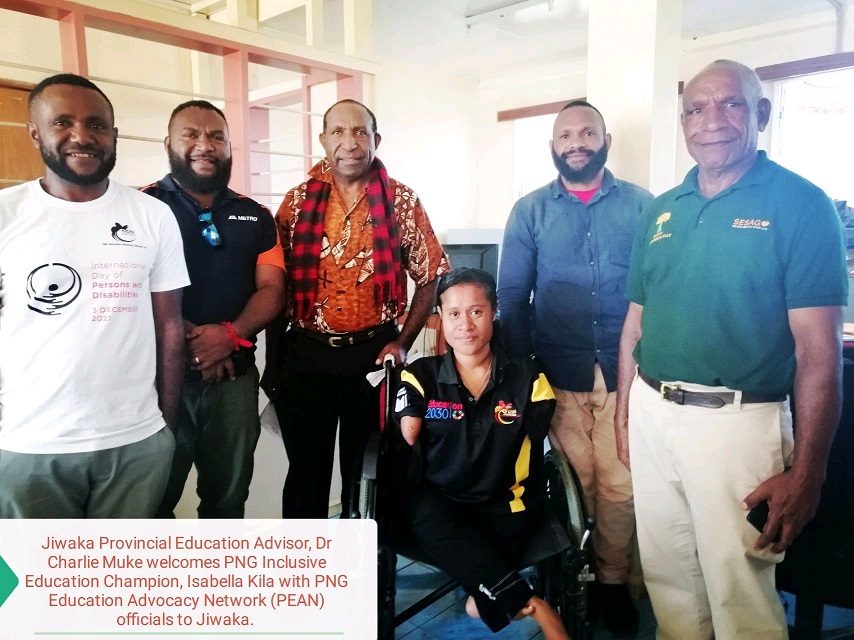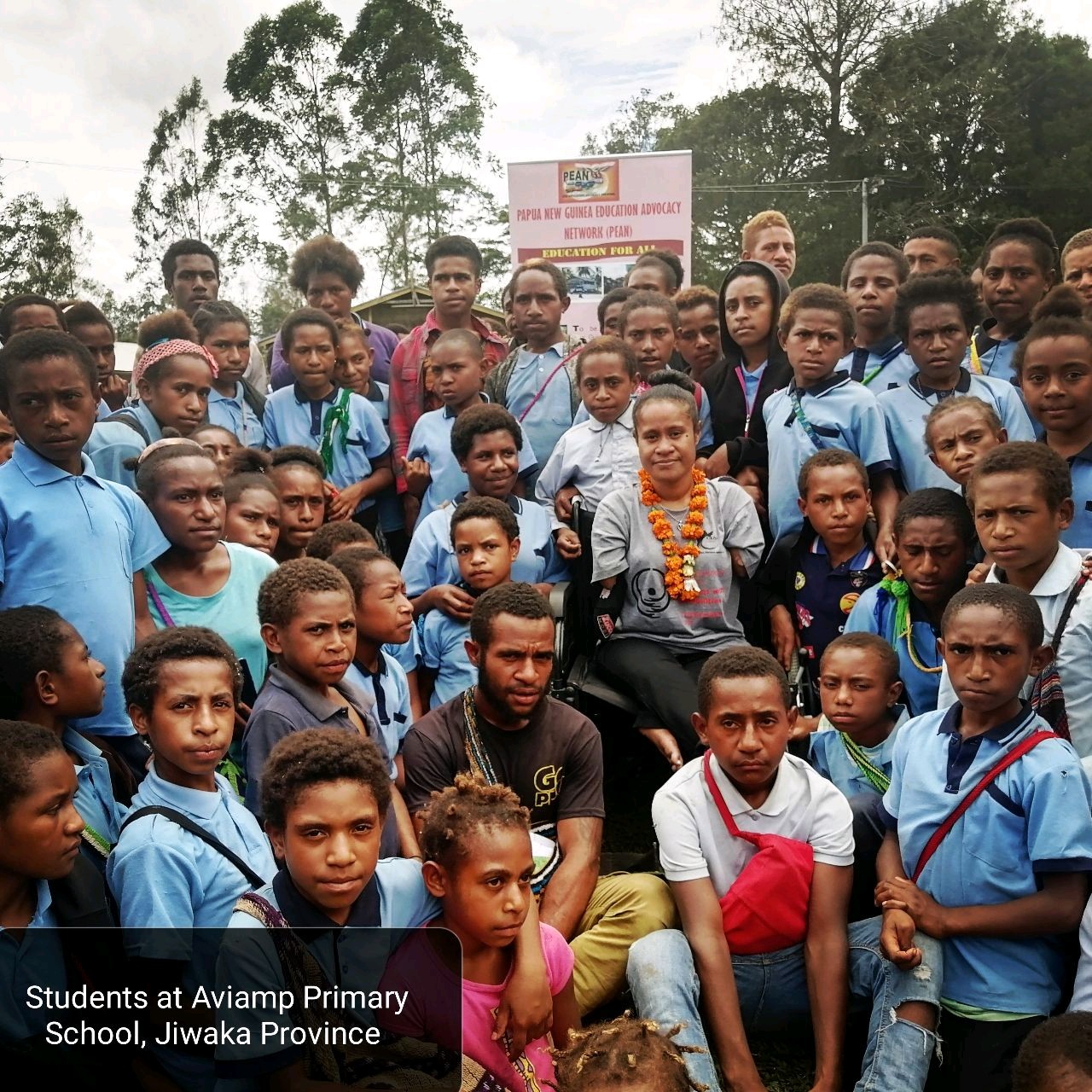Disability Didn't Stop Isabella, A Young Advocate For Inclusion In Papua New Guinea
Isabella Kila joined the Papua New Guinea Education Advocacy Network (PEAN) – supported by Education Out Loud, GPE’s fund for advocacy – as a youth advocate to promote the universal right to education.
As a child, Isabella faced several barriers that almost prevented her from fulfilling her right to education. At first, she was able to attend a public school despite her physical disability.
Two factors paved the way: her mother’s commitment to accompanying her at school all day, and the ease with which she could get around at school in her wheelchair, without needing significant adaptation of the school environment.
But the stereotypes surrounding disability proved to be too great, and Isabella’s family could not convince the public school to keep allowing her to attend. Thankfully, a church-based school was accommodating of her needs, and she was able to continue her educational path.
Isabella went on to study at the University of Papua New Guinea (UPNG) and completed a bachelor’s degree in law. Having successfully overcome the obstacles to education associated with disability, Isabella is also committed to fighting for the right of other children to education, regardless of their disability, gender, or any other personal characteristics.
Such barriers to education are not limited to Isabella but affect many children in Papua New Guinea. At the very least, following WHO's estimate that 15% of the world’s population live with disabilities, 1.2 million people in Papua New Guinea live with a disability out of a population of approximately 8 million people.
PEAN realized the need for more inclusive policy provisions including inclusive education for persons with disabilities. It was an important advocacy agenda because there is a need to make the education system more inclusive, prioritize resources for inclusive education and prepare teachers to cater to the needs of children with disabilities so that children with disability do not have to face bullying and stigmatization.

Becoming an advocate for inclusion
Papua New Guinea Education Advocacy Network (PEAN), which has long been advocating for the right to education, invited Isabella to join their efforts.
Working with PEAN has given Isabella the opportunity to interact with students, members of communities, and authorities along with civil society organizations especially through consultations in Port Moresby and visits to three provinces.
Isabella has become instrumental in raising the voice of persons with disabilities in this island country by sharing her own experience including the barriers she faced and the achievements she was able to accomplish when given adequate support.
Isabella’s attainment of her law degree also helps convince people that it is not disability in itself but rather a system excluding children with disability that prevents the right to education to be fulfilled.
For young people and children with disabilities, such evidence is inspiring and gives them the motivation and confidence to continue their education, despite the challenges they face.

In conveying a positive message, Isabella has helped convince authorities to incorporate disability inclusion in government policies and hold authorities accountable for the effective implementation of the policies. Isabella’s contribution was reflected in the National Employment Policy 2020–2030 that has captured the employment of persons with disability on top of its focus.
This engagement has also helped change Isabella’s own life; she received a job offer from PNG Ports, one of the largest state-owned companies in Papua New Guinea, and is currently employed by the company, at their Gender Desk.
Provided with the right opportunities and social support, persons with disabilities can achieve amazing things if communities, parents, and children change their attitude towards disability inclusion.